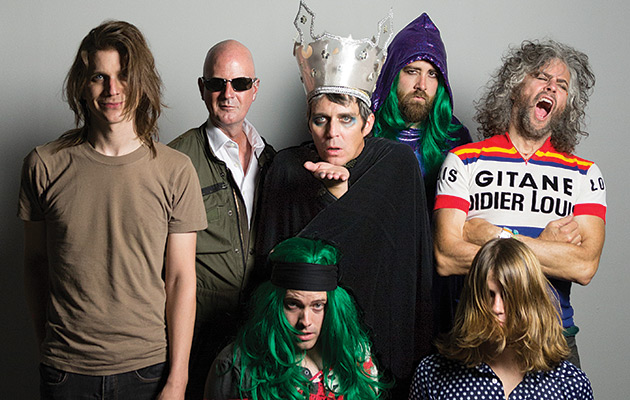The thought of another Flaming Lips album might initially manifest itself in the form of a physical repulsion for some longtime fans, however after a few times through Oczy Mlody (Warner Bros, 2017) fits into the Lips’ eclectic discography just fine.
Wayne Coyne and The Lips are no strangers to experimentation, and in Oczy Mlody (or “eyes of the young,” a nod to the Polish novelist Erskine Caldwell) they craft elaborate textures and explore new and old melodic avenues, with help from with their newest “fwend,” Miley Cyrus.
Let’s be honest, this album is no Soft Bulletin. It’s no Embryonic either. Heck, it’s not even a Yoshimi. But that’s a good thing. Mlody branches out in all the right ways, it’s not excessive in its experimental ventures, and not too shallow in its dream-pop sensibilities.
Mlody draws on several familiar Lips tropes, which, depending on how one perceived them the first time around, could be taken two ways. Some may view these tactics as a righteous extension on the ambient stylistic threads established in 2014’s The Terror, while others may see The Lips as trying to re-purpose stale antics into a new box.
Yet the record sounds nothing like you’d expect it might. It’s not a bubblegum pop-centered Miley Cyrus record, and it’s not an opium-induced psychedelic free-for-all either. It’s unique in a way The Flaming Lips alone know how to devise.
The songs still have their one-of-a-kind qualities, seen on tracks such as, “Almost Home (Blisko Domu)” a whirlwind of arpeggiated synth-tones and reverberated vocals, and “There Should Be Unicorns” which features vocals from Reggie Watts, multi-layer drum sequencing, casio-tones and old school Nintendo sound-effects.
This album signifies an expansion for The Lips. Although, for a group that switches their style up almost every record, it’s actually rather faithful. Mlody has something for every level of Lips fan, catchy hooks and rich production for first timers, and signature Lips riffs and tones for those brave enough to return.
Stand-Out Tracks: “How??”, “There Should Be Unicorns”, “Galaxy I Sink”, “Almost Home (Blisko Domu)”, “We A Family”
FFO: Mercury Rev, Acid Mothers Temple, Of Montreal, Animal Collective




